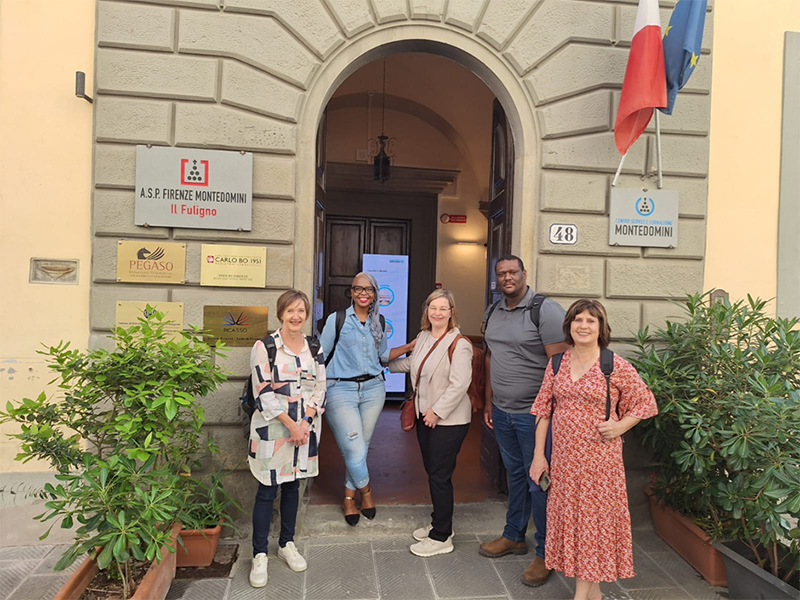Florence, the Italian city made famous by Renaissance artists such as Michaelangelo and Leonardo da Vinci, is also a modern-day hub for leaders in science, technology, engineering and mathematics (STEM) education.
In May this year, the city ushered in a new phase in STEM teacher education as global partners gathered to launch the Erasmus+ Capacity Building project, aimed at transforming how future teachers learn and teach.
Funded by the European Union, the project is led by the North-West University (NWU) under the coordination of Prof Dorothy Laubscher, holder of the UNESCO Chair in Multimodal Learning and Educational Resources. The project’s full title is “Transforming STEM teacher education in South Africa through self-directed open educational Practices (Ted-SOEP)”.
The project’s first in-person transnational meeting on 22 and 23 May 2025 brought together STEM education specialists from institutions in South Africa and Europe.
“Our goal is to support lecturers and students by developing sustainable, open learning environments that empower all participants in the education system,” said Prof Laubscher.
Seven universities join forces
South African universities involved in the project include the NWU, UNISA, University of Pretoria, University of the Witwatersrand and Sol Plaatje University. European institutions are Pixel International Education and Training Institution based in Florence and the University of Florence in Italy, along with the Instituto Politécnico de Bragança in Portugal.
The meeting in Florence focused on developing a training package aimed at integrating open educational resources (OERs), open educational practices (OEPs) and self-directed learning into STEM teacher education. The agenda included planning national workshops and reviewing strategies for embedding open practices into existing curricula.
“Building a shared understanding of how to implement open educational approaches and self-directed learning was a central outcome of our discussions,” Prof Laubscher said.
Following the meeting, the University of Florence hosted a workshop from 26 to 30 May 2025. The workshop was held at Il Fuligno, a historical complex in the Florence city centre. This served as the site for practical sessions, academic dialogue and collaborative learning.
According to Prof Laubscher, these sessions help contextualise educational practices for local environments. “The collaboration makes real change possible.”
The workshop included contributions from various renowned academics from the University of Florence, including Prof Maria Ranieri and Prof Luigi Barletti. The workshops covered best practices, capacity-building and context-sensitive approaches to implementing OEPs and OERs in teacher training.
NWU participants in the Florence events included Prof Laubscher, Dr Moleboheng Mokhele-Ramulumo, Dr Annalie Roux, Dr Judicial Sebatana and Dr Sukie van Zyl. Other NWU team members involved in the broader project include Prof Chanelle Bosch, Dr Donnavan Kruger, Prof Neal Petersen and Dr Gordon Sekano.
“The project strengthens our collaborative networks and supports transformation in education,” said Prof Laubscher. “We are building something that can have lasting value.”
For more information visit the Ted-SOEP project website: www.tedsoep.org.

The NWU team that attended the transnational workshop in Florence: from left are Dr Annalie Roux, Dr Moleboheng Mokhele-Ramulumo, Prof Dorothy Laubscher, Dr Judicial Sebatana, and Dr Sukie van Zyl.
